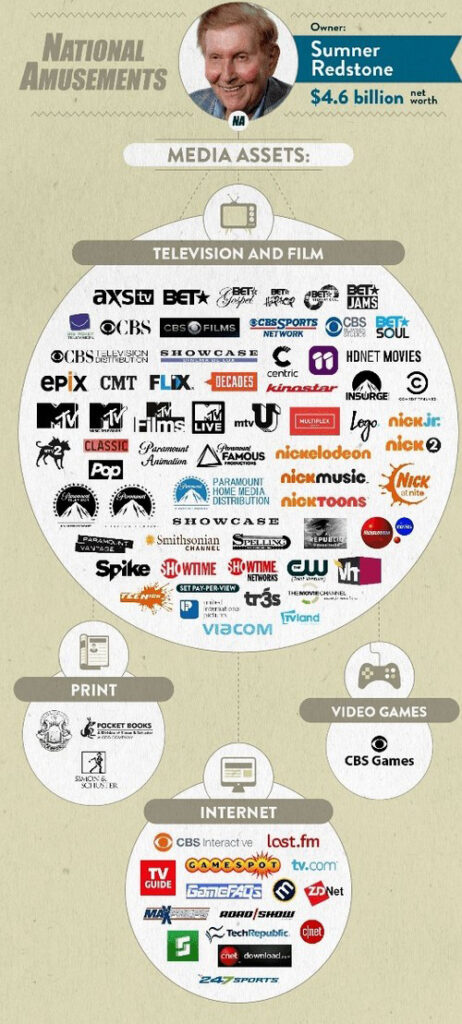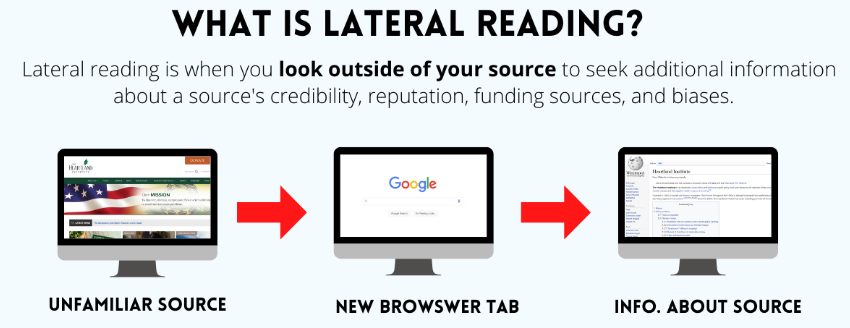The Media

I) Intro: The Men of Issachar
In 1 Chronicles, 12:32, you have this:
from Issachar, men who understood the times and knew what Israel should do—200 chiefs, with all their relatives under their command; (1 Chron 12:32)
Issachar has the ability to advise the nation of Israel on what it was that constituted the right course of action. You see this is Matthew Henry’s Commentary:
The men of Issachar were the fewest of all, only 200, and yet as serviceable to David’s interest as those that brought in the greatest numbers, these few being in effect the whole tribe. For, 1. They were men of great skill above any of their neighbours, men that had understanding of the times, to know what Israel ought to do. They understood the natural times, could discern the face of the sky, were weather-wise, could advise their neighbours in the proper times for ploughing, sowing reaping, etc. Or the ceremonial times, the times appointed for the solemn feasts; therefore they are said to call the people to the mountain (Deut 33 19), for almanacs were not then so common as now. Or, rather, the political times; they understood public affairs, the temper of the nation, and the tendencies of the present events. It is the periphrasis of statesmen that they know the times, Esth 1 13. Those of that tribe were greatly intent on public affairs, had good intelligence from abroad and made a good use of it. They knew what Israel ought to do: from their observation and experience they learned both their own and others’ duty and interest.1
This verse represents a Divine endorsement of being politically astute – to “understand the times” means that you are knowledgeable about those individuals and events that influence policy and determine the course of our nation.
You see this reiterated in the New Testament when it comes to praying for our leaders:
I urge, then, first of all, that petitions, prayers, intercession and thanksgiving be made for all people— 2 for kings and all those in authority, that we may live peaceful and quiet lives in all godliness and holiness. (1 Tim 2:1-2)
You can’t effectively pray for your leaders unless you know who they are and the decisions they’re contemplating.
Some see Politics as an arena that falls short of a legitimate mission field because they see the Sovereign Will of God as being something that cannot be altered, either by voting or by prayer (Dan 2:21). Others see Politics as the ultimate manifestation of the gospel and in so doing, “…reduce the Christian faith from a pilgrim path to heaven into a socio-political scheme for the present world.”2
Neither extreme is healthy nor holy (Ecc 7:16-18). Rather, the “Christian Citizen” should engage current events as opportunities to serve others by championing those Truths that both point to God and benefit mankind.
J.I. Packer was a brilliant theologian who, in an article he wrote for “Christianity Today” in 1985 said:
Hence, although Christians are not to think of themselves as ever at home in this world but rather as sojourning aliens, travelers passing through a foreign land to the place where their treasures are stored awaiting their arrival (see 1 Peter 2:11; Matt. 6:19–20), Scripture forbids them to be indifferent to the benefits that flow from good government [see Prov 29:2; Matt 22:21; 2 Tim 2:1-2; 1 Pet 2:17]. Nor, therefore, should they hesitate to play their part in maximizing these benefits for others, as well as for themselves. The upholding of stable government by a law-abiding life, and helping it to fulfill its role by personal participation where this is possible, is as fitting for us today as it was for Joseph, Moses, David, Solomon, Nehemiah, Mordecai, and Daniel (to look no further). We must see it as service of God and neighbor.4
Bottom line: We have a responsibility to be involved and aware of what’s going on in Politics and in our culture.
But how do you become aware? Where can you go to learn who comprises the decision makers within our nation’s government and the issues that they’re contending with?
The media.
II) Many Advisors
Proverbs 15:22 says:
Plans fail for lack of counsel, but with many advisers they succeed. (Prov 15:22)
You need to have a plan for the way you vote, how you’re going to pay your bills and where you’re going to go on vacation.
You need a plan in order to determine how you’re going to think.
Yet, you don’t have a Top Secret clearance, you’re not a part of the Oval Office, you’re not directly privy to those things that can influence the way you process yourself and the world around you.
So, from that standpoint, you’re dependent on the media in order to formulate your plans and inform your convictions.
The problem is not every resource you have available to you is reliable.
John Norvell was a newspaper editor and one of the first Senators from Michigan. At one point he wrote a letter to Thomas Jefferson asking him for his recommendations of what books and newspapers to read in order to acquire “sound political knowledge.”5
Jefferson responded by saying:
Nothing can now be believed which is seen in a newspaper. Truth itself becomes suspicious by being put into that polluted vehicle… General facts may indeed be collected from them, such as that Europe is now at war, that Bonaparte has been a successful warrior, that he has subjected a great portion of Europe to his will, &c., &c.; but no details can be relied on. I will add, that the man who never looks into a newspaper is better informed than he who reads them; inasmuch as he who knows nothing is nearer to truth than he whose mind is filled with falsehoods & errors. He who reads nothing will still learn the great facts, and the details are all false.6
Just because it’s a headline doesn’t mean it’s a bottom line.
Bear in mind that when we say, “the media” in this conversation, we’re not referring only to the Journalistic profession. “Media” refers to any kind of published information, however it might be packaged.
- A punch line (Prov 26:18-19)
- A movie script
- A song lyric (Dt 33:19 [“…if a man were permitted to make all the ballads he need not care who should make the laws of a nation” {Andrew Fletcher}]7)
- A headline
- A novel
One thing you want to be aware of: While the above bullet list implies a collection of distinct mediums, the fact of the matter is many of the more well-known media brands are subsidiaries of a larger conglomerate.
 In a WebFX article entitled, “The 6 Companies That Own (Almost) All Media,” 6 companies are listed that represent the bulk of what dictates the headlines, the punchlines, the hooks and the books that we consume every day.8
In a WebFX article entitled, “The 6 Companies That Own (Almost) All Media,” 6 companies are listed that represent the bulk of what dictates the headlines, the punchlines, the hooks and the books that we consume every day.8
For example, “National Amusements” includes :
- CBS
- CMT
- MTV
- Paramount
- Show Time
- VH1
- Viacom
- Nickelodeon
- Simon & Schuster
- TV Guide
Disney owns:
- ABC
- LucasFilm
- ESPN
- A&E
Comcast, which is an internet service provider, owns NBC along with Universal Studios. NBC Universal own Capitol Music, Geffen Records and more.
TimeWarner owns CNN, TBS, Warner Brothers Entertainment…
Most of your major news sources answer to an umbrella company that includes any one of a number of mediums that cover both sports and entertainment.
In other words, however these companies want to portray what’s true, they can do it through a variety of media outlets that go beyond a mere commentator and a television camera.
You also have Social Media. New research shows that 71% of Americans get their news from Social Media platforms.9
You have access to “many advisors,” but how do you determine which one is worth listening to?
III) Test the Spirits
1 John 4:1-3 says:
Dear friends, do not believe every spirit, but test the spirits to see whether they are from God, because many false prophets have gone out into the world. 2 This is how you can recognize the Spirit of God: Every spirit that acknowledges that Jesus Christ has come in the flesh is from God, 3 but every spirit that does not acknowledge Jesus is not from God. This is the spirit of the antichrist, which you have heard is coming and even now is already in the world. (1 Jn 4:1-3)
While it’s tempting to process what John is saying as something that applies exclusively to the gospel, you want to remember what it says in Ephesians 6:12:
For our struggle is not against flesh and blood, but against the rulers, against the authorities, against the powers of this dark world and against the spiritual forces of evil in the heavenly realms. (Eph 6:12)
You don’t want to lose sight of the spiritual realities that serve as the fuel and the foundation for the practical tensions that exist in our own lives as well as on the national and global stage.
It all comes down to a spiritual struggle. This isn’t just “media bias” and it’s more than the Surgeon General or the Electoral College. Yes, these are important topics and essential institutions, everything inevitably falls beneath the heading of a spiritual contest.
A “lie” is anything that’s not true. It’s the signature tactic of Satan himself (Jn 8:44). However a falsehood manifests itself, regardless of the subject matter or its severity, its source is a dynamic whose intent is to steal, kill and destroy (Jn 10:10).
By subscribing to a lie, you place yourself on a path that, however incremental it may appear, adds weight to the load you’re having to carry as you navigate the challenges and questions that are a part of the human experience.
In time, that weight will prove lethal:
For the waywardness of the simple will kill them, and the complacency of fools will destroy them; 33 but whoever listens to me will live in safety and be at ease, without fear of harm. (Prov 1:31-33 [see also Ps 49:20; Prov 11:14; Hos 4:6)
This is why it’s important to “cross examine” those sources that purport to be telling the truth.
In a lawsuit the first to speak seems right, until someone comes forward and cross-examines. (Prov 18:17)
You want to test the spirits and not just accept things at face value. You do that by first asking how the source answers the questions, “Who’s in charge?”
This goes back to the core of 1 John 4:1-3. Does the source of your information has as its philosophical foundation an acknowledgement of the death and resurrection of Christ as a historical fact?
On the surface, that may seem a little far-fetched and perhaps a little over the top. How many companies do you know have a “Statement of Faith” included as part of their corporate mission statement?
But even if you’re not publicly acknowledging the empty tomb, you can still be on the right side of the issues if you’re willing to be used by God to disseminate the truth.
A good example of that is King Cyrus…
King Cyrus was the King of Babylon who gave the Jews permission to rebuild the Temple and the city of Jerusalem (Ezra 5:13; Is 45:13). Yet, King Cyrus was not a believer…
For the sake of Jacob my servant, of Israel my chosen, I summon you by name and bestow on you a title of honor, though you do not acknowledge me. 5 I am the Lord, and there is no other; apart from me here is no God. I will strengthen you, though you have not acknowledged me, 6 so that from the rising of the sun to the place of its setting people may know there is none besides me. I am the Lord and there is no other. (Is 45:4-6)
Put this in contemporary terms…
Would you have voted for Cyrus? According to the criteria that some use, the answer would be, “No.” But you have to remember that God can catch a fly ball with either a dirty mitt or a brand-new glove. The issue isn’t the condition of the mitt, but the skill of the Hand inside.
With Cyrus, you had someone who was used by God to accomplish the will of God and that’s the bottom line. However spiritually or morally bankrupt a person may be, you want to be mindful that if the presence of sin is a determining factor, that no one can be trusted to lead effectively or wisely.
Look for where God is working and support those who are being used by Him to do His bidding (Mk 9:40). Look to those media sources that, however “secular” they may appear, are nevertheless publishing information that is credible both in the sight of man and God.
When they report on those issues or feature op-ed pieces pertaining to the issues that dominate the headlines…
- Are all sides of the issue addressed with the same amount of verbiage?
- Does one side get treated with sympathy while the other side is viewed as cruel and uncaring?
- Is there a subtle endorsement of an anti-biblical perspective?
That’s something to consider.
And remember too that you don’t have to lie to be guilty of not telling the whole truth.
Consider the following:
Pharisees Doubt The Resurrection of Christ
All of Israel is caught up in the rumors pertaining to the supposed resurrection of Jesus of Nazareth, a religious and political criminal that was recently put to death. While some are insistent that he is, in fact, alive, there are many others who dismiss it as yet another attempt being made on the part of his followers to validate his claims that he was the Son of God. We sat down with several high-ranking officials, both from the Jewish and the Roman institutions that championed what was a very difficult, yet just, decision to get their thoughts.
From the very beginning, the Nazarene who referred to himself as the Son of God, was a problem in the way he incited many Jews to question the Law and their own heritage. His exploits weren’t curious as much as they were damaging, though many of those who heard him speak were unaware of just how toxic his perspective was. Thankfully there were steady and committed hands ready to prevent his corrosive effect from spreading by publicly questioning him and revealing his true colors.
“We challenged him,” said Simon, one of our more prominent Pharisees. “We demanded that he validate his testimony concerning himself and he wasn’t able to do it. (John 6)”
“His illegitimacy is no secret,” says Reuben, an associate of Simon and with him while they were questioning Jesus. “His mother was a disgrace and to see him now trying to assert himself as being equal to Jehovah is not only ludicrous, it’s almost sad to see someone so desperate to cover up the scandalous and unlawful aspects of his birth. (Mk 6:3)”
Clavius, a familiar tribune who serves Rome and has been an advocate for our Jewish traditions on many occasions, has no trouble being critical of Jesus.
“I remember a servant who lived in the household of one of my centurions who was deathly ill,” said Clavius. “He asked the Christ to come and heal his servant and this Jesus, who is supposedly compassionate, never even came to his home. I remember hearing that and from that moment forward, I was convinced that he was a problem and a fraud. (Matt 8:5-13)”
Atticus is yet another distinguished Roman, having served in the Roman army for two decades and a veteran of many conflicts. He was one of the guards who were stationed at the site of the Christ’s tomb (Matt 27:62-65).
“It’s insane!” he said. “I’ve been around death more than once. Jesus died. He’s dead. It might make you sad, but that doesn’t change the fact He’s gone. And I know what it is to grieve, but to see this rabble refuse to accept the death of their cause and their champion by inventing this ridiculous story that he ‘rose from the grave’ is nothing more than a crazy effort to not accept the fact that your Christ is no more and you need to move on.”
When asked about the way in which the Pharisees were accusing the disciples of having stolen Christ’s body in order to give the appearance of Jesus having risen, Atticus said, “Your readers need to know that the disciples are lying! There is no resurrection. They broke the seal, they violated the sovereignty of Rome, they’re a stench among their own people…they’re insane! (Matt 28:11-15)”
Among those who insist that he rose is a former small business owner named Peter. As a fisherman, your fortunes are limited by default. Perhaps that’s why the prospect of becoming one of the Christ’s followers appealed to him to the point where he abandoned his craft and his family (Matt 8:14-18; 1 Cor 9:5). Maybe in the context of aligning yourself with someone who challenges the governing authorities could lead to a more prominent and financially sound position. Whatever his motivation was, his resolve to promote the fantasy of a risen “Messiah” is still very much intact.
“I’ve seen him!” said Peter. “I’m ashamed to admit that during his arraignment and trial, I denied even knowing him – I was that determined to put as much distance between myself and my former teacher as possible (Matt 26:73-75).”
“But that all changed when I saw him,” Peter said. “He’s alive and I’ll stake my life on it (Acts 4:18-19).”
Peter’s passion is admirable, but does that passion negate the testimony of hundreds of eye witnesses let alone the sworn statements coming from established and reputable Roman officials and Jewish authorities?
“There is something both healthy and beneficial in retreating from emotionally charged declarations and instead cling to the certainty of one’s spiritual heritage,” said Simon. “We obey the political authorities that God has instituted and we revere the Law He gave to Moses. This is my stance and I hope it is one that our people will adopt as well.” (“Pharisees Doubt the Resurrection of Christ – An Example of Fake News”)
At no time does this article “lie.” There’s nothing inaccurate about what’s being said, but the words used to describe Peter as opposed to the Jewish and Roman authorities position his testimony as questionable. The majority of the article focuses on those who see the Resurrection as a hoax and while they do give some space to Peter’s perspective, the words they use to describe both him and his mindset are laced with cynicism and suspicion.
This is a great example of how you can be “honest” and at the same time manipulative.
You want to vet your sources by evaluating the way in which they maintain an impartial disposition with the words they use, the people they quote and even the images they display.
And should you encounter someone insisting that kind of perspective is a violation of church and state, you can respond by saying…
The Establishment Cause was not designed to limit Christianity’s influence on government, but to restrict government’s influence on Christianity. Whether you believe that or not is irrelevant.
Sixteen times Congress called for a National Day of Prayer and Fasting during the Revolutionary War.10 The Constitutional Convention met in 1787. Among the first motions carried by the newly formed Congress in 1789 was a law to hire and pay chaplains for each house.11
We say, “So help me God” when we get ready to testify in court. We say “one nation, under God” when we pledge allegiance to the flag. It’s common for a public servant to place his or her hand on a Bible when they’re getting ready to be sworn into office.
Any resource you attempt to quote as a supposed indicator of our founding fathers having a secular approach to government is inevitably a comment taken out of context and is indicative of either a personal bias or an ignorance of history, neither of which constitute a credible perspective.
The Bible has been our “go to” resource for all things moral and spiritual for the last two centuries. The only ones who oppose it are those that are determined to be their own absolute and therefore need to pose as a victim of an intolerant society in order to avoid that line of questioning that reveals their disposition to be both selfish and absurd.
The issue of religion is not defined by the presence or the absence of a church steeple. As a member of the human race, you are “religious” by default in that in order for the human experience to have any meaning, the individual needs to determine for themselves what it is that constitutes the basis for their existence and the standard by which their moral behavior is measured. However you arrive at those absolutes determines your religious paradigm.
Whenever you hear someone be critical of “religion,” though it depends on the context of the conversation, more often than not they’re asserting themselves as their own deity. While they attempt to conceal the true nature of their viewpoint by suggesting that religion provides no real, logical explanation, given the supernatural dynamic that characterizes the origin of the universe etc. Fact is, the “science” they would assert as a more substantive answer is characterized by probability values that go beyond the boundaries of absurd.
What they cling to as an alternative way to explain how the universe came to be and the intangible intricacies of the human experience doesn’t quality as an explanation as much as it does an unwillingness to concede the reality of something greater than themselves.
When they speak of “reason” and “compassion,” they are invoking those characteristics according to however they define what is logical and benevolent. There is no standard apart from the one they’re comfortable with and in that regard, they are their own bottom line.
Those who are the most vocal in their argument for the separation of church and state are not looking to “separate” the church from the state as much as they are wanting to establish a new church where the principles coming from the pulpit are more in line with what they want to hear.
They decide what’s right, moral and just. There is no authority apart from the one they’re willing to acknowledge, but…
You can’t maintain that kind of perspective without extending the same kind of methodology to everyone else. And if everyone is their own absolute, then there is no right or wrong and your viewpoint is valid provided you’re surrounded by those who agree with you.
That’s why there’s such an emphasis on the Supreme Court and the Oval Office. You can manipulate these entities to a certain extent by the way you vote, but you can’t edit the Word of God.
But if you don’t yield to the Word of God, you are then basing your entire existence on a human agency which is destined to either die, quit or fail.
By eliminating God from your worldview, you reduce yourself to a lucky accident, the universe to a pointless mistake and every rule, given and absolute to a temporary coupon whose validity is determined by either the mood of the individual or the consensus of the culture.
You are not standing on solid ground and if the resources you refer to for your news is not grounded in something more than a receipt or a humanistic worldview, your new is not standing on solid ground and isn’t news promoting all that needs to be heard.
“Doctrine” (didaskalia [dih-dahs-kah-LEE-ah]) is just another word for “teaching.”12
It says in 2 Timothy 4:3:
For the time will come when people will not put up with sound doctrine. Instead, to suit their own desires, they will gather around them a great number of teachers to say what their itching ears want to hear. (2 Tim 4:3)
Another way to determine the substance of the resources you’re looking at is to look for the presence of “Mickey Hood…”
| Mickey Hood | ||
| M | Mobs | They spend more time talking about Labels, Mobs and Crowds than they do a Name, a Person and a Choice. |
| C | Characters | They spend more time assaulting their opponent’s character than they do discussing their opponent’s content. |
| H | Hurt | They spend more time pretending to be hurt than they do proving that they’re right. |
| H | Honest | They spend more time trying to sound honest rather than actually telling the truth. |
| D | Decisions | They spend more time defending bad decisions than they do applauding good choices. |
Anytime you hear these tactics being deployed, you want to be aware that they are often used by people who don’t have something to say as much as they have something to hide.
For example, here are two different articles talking about the way in which illegal immigrants have been able to secure free turkey dinners at the expense of New York residents who depend on the charities that are now being consumed by those who’ve crossed the border illegally.
Displaced by war, persecution, violence, human rights abuses, poverty or the climate crisis, newcomers in recent years have fueled a massive migration movement to cities across the United States.
Some have been bussed up from Texas while others have arrived on their own, straining local resources in a city that under a local mandate must offer shelter to all.
While other American hubs have received a growing number of migrants, New York City has become the epicenter of the crisis. The number of newly arrived asylum-seekers since spring 2022 has surpassed 100,000, with costs for housing and other basic services projected to run up to $12 billion in the coming years.
Unprecedented migration in the Western Hemisphere has posed a steep challenge for the Democratic administration of President Joe Biden, at the US Southern border and in cities like New York, where asylum-seekers choose to go as their cases wend through US immigration courts, often for years.13
Compare that article to this one:
Some 125,000 illegal aliens have arrived in New York City in a little more than a year. Just a couple of weeks ago, a team of researchers from FAIR traveled to the Big Apple, where we witnessed illegal aliens at the Roosevelt Hotel receive free food in what used to be a restaurant open to the public.
Now, the migrant crisis is impacting the Thanksgiving holiday of one Queens neighborhood. New York City Housing Authority’s Queensbridge Houses residents look forward to weekly mobile food pantries, but over 8,000 migrants have moved in over the past year, straining the resources meant for New Yorkers…
Fox 5 New York says free food has become a source of tension between New Yorkers and newly arrived migrants who are now living off the system. Struggling Americans shouldn’t be put behind those who broke American immigration laws to get here, but that’s what continues to happen.14
Can you see how a message can be communicated without stating it verbatim?
This is why you want to engage in what one resource refers to as “Lateral Reading.”

Consider all of the relevant information as it’s presented by a variety of resources in order to guarantee a comprehensive portrait as opposed to a narrow minded thumbnail.
IV) Conclusion
While we’ve been talking about the importance of vetting your sources when it comes to the news and politics, the same thing can be said about the way you read and study God’s Word.
16 All Scripture is God-breathed and is useful for teaching, rebuking, correcting and training in righteousness, 17 so that the servant of God[a] may be thoroughly equipped for every good work. (2 Tim 3:16-17)
You always want to ensure you’re basing your convictions on the whole of God’s Word and not just one verse that may or may not be unwittingly taken out of context.
This goes back to being a “worker…”
Do your best to present yourself to God as one approved, a worker who does not need to be ashamed and who correctly handles the word of truth. (2 Tim 2:15)
So just like you want to be in a perpetual pursuit of the “whole story,” you also want to be grounded on the whole of God’s Word in order to ensure that you’re not just making an appearance, but you’re making a legitimate difference using His Power and His Truth.
- Matthew Henry Commentary on 1 Chronicles 12, Bible Study Tools, https://www.biblestudytools.com/commentaries/matthew-henry-complete/1-chronicles/12.html, accessed November 24, 2023
- “Christianity Today Institute”, “How To Recognize a Christian Citizen”, J.I. Packer, April 19, 1985, https://www.christianitytoday.com/ct/1985/april-19/how-to-recognize-christian-citizen.html, accessed November 24, 2023
- Ibid
- Ibid (additional Scripture references added)
- “Founders Online”, “To Thomas Jefferson from John Norvell, 9, May 1807”, https://founders.archives.gov/documents/Jefferson/99-01-02-5565, accessed November 24, 2023
- “Library of Congress”, “Image 2 of Thomas Jefferson to John Norvell, June 11, 1807”, https://www.loc.gov/resource/mtj1.038_0592_0594/?sp=2&st=text, accessed November 24, 2023
- “Andrew Fletcher” “Wikiquote”, https://en.wikiquote.org/wiki/Andrew_Fletcher, accessed November 25, 2023
- “The 6 Companies That Own (Almost) All Media”, “WebFx”, https://www.webfx.com/blog/internet/the-6-companies-that-own-almost-all-media-infographic/, accessed November 24, 2023
- “New Research Shows that 71% of Americans Not Get New Content via Social Platforms”, Andere Hutchinson, January 12, 2021, “Social Media Today”, https://www.socialmediatoday.com/news/new-research-shows-that-71-of-americans-now-get-news-content-via-social-pl/593255/, accessed November 24, 2023
- “March 20, 1781”, “American Devotional Series”, http://www.americandevotionalseries.com/the-revolutionary-war/march-20-1781/, accessed November 25, 2023
- “History of the Chaplaincy”, “Office of the Chaplain”, https://chaplain.house.gov/chaplaincy/history.html, accessed November 25, 2023
- “Blue Letter Bible” “didaskalia”, https://www.blueletterbible.org/lexicon/g1319/kjv/tr/0-1/, accessed November 29, 2023
- “CNN”, “For Migrants Still Coping with Traumatic Journeys to America, Thanksgiving Will be a Day Like Any Other”, Ray Sanchez, November 23, 2023, https://www.cnn.com/migrants-thanksgiving-new-york-city/index.html, accessed November 29, 2023
- “Fair”, “Low Income New Yorkers Lose Out on Thanksgiving Turkeys as Migrants Gobble Them Up”, Joey Chester, November 21, 2023, https://www.fairus.org/blog/2023/11/21/low-income-new-yorkers-lose-out-thanksgiving-turkeys-migrants-gobble-them, accessed November 29, 2023
- Image credit: https://libguides.uwgb.edu/evalinfo












Leave a Reply
Want to join the discussion?Feel free to contribute!